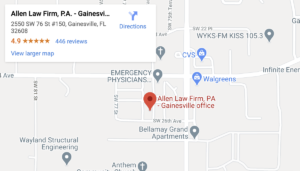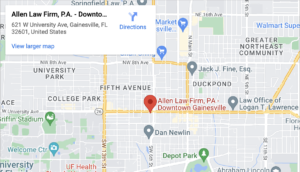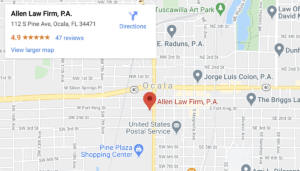
Mild infections are commonplace, as almost everyone has dealt with a sinus infection or a cut that has become irritated and painful. While these ailments aren’t pleasant, they rarely pose a serious threat or last for all too long. That said, any infection you face can become life-threatening if it results in a condition known as sepsis.
When medical personnel are doing their job properly, sepsis is almost entirely preventable. Still, if you are affected, the information below will help you understand your circumstances and what you can do about them.
What Is Sepsis?
Sepsis is a condition that develops when an infection spreads far enough to reach your bloodstream. In doing so, it causes your natural infection-fighting process to backfire; instead of fighting the infection, it effectively attacks your organs, putting you in a life-threatening state that requires immediate medical attention. If not properly treated, it will likely lead to septic shock, damaging and possibly shutting down your vital organs.
What Causes Sepsis?
While sepsis can result from any infection, many cases of the illness involve some form of medical malpractice or nursing home abuse, seeing that it is a complication that only arises when an infection goes untreated.
When the average person gets an infection, they naturally do something about it. If it is an external infection, they will likely use antibiotic ointment or clean it with soap and water; for an internal infection, most people are prescribed antibiotics by a doctor.
If a person is bed-bound, however, as is often the case for those in hospitals or nursing homes, they are likely relying on doctors, nurses, or other staff members to monitor their health and needs. If those individuals fail to properly treat an infection — a bedsore, for instance, which is a common sight among immobile patients — it can easily bring on sepsis, and the affected person will never know they are in danger until it’s too late.
Medical professionals or nursing home staff should always monitor for that risk and treat it as needed. If they don’t, they are acting negligently, which makes them responsible if the person they look after develops sepsis.
What Are the Symptoms of Sepsis?
While death is often believed to be the sole outcome of sepsis, it isn’t the only possible result – just the most dire. With that said, there are common symptoms of the condition that do not immediately jeopardize a person’s life if treated properly.
These include the following:
- Difficulty breathing
- Unexplained sweating
- Lightheadedness
- Shivering
- Mental fog or confusion
Furthermore, if you are experiencing sepsis, you will most likely also experience the complications or symptoms associated with the initial infection. As an example, you would likely suffer pain while urinating if a urinary tract infection is what led to your developing sepsis.
How Do I Prevent Sepsis?
As a general rule of thumb, you should always take infections (and the risks thereof) seriously. If you sustain any type of cut or abrasion, clean it out with soap and water, change its dressings regularly, and apply antibiotic cream every time you do so to work toward preventing infection.
If you do develop any type of infection (whether from a wound or another source), seek medical treatment as soon as possible to decrease the likelihood that it will turn septic.
How Does Negligence Relate to Sepsis?
Unfortunately, the above precautions won’t help when you are placed in a situation where the actions of another can result in sepsis. If this happens, you may have a negligence claim against them for compensation.
In the event that you catch any of the following acts and other signs of negligence taking place, contact a personal injury attorney and move yourself or your loved one to a safer environment as soon as possible:
Violations of Safety Protocols
One possible cause of infections in hospitals and nursing homes is the failure to follow safety protocols. Medical personnel deal with many different types of patients; to prevent the spread of infections between patients, they are instructed to regularly wash their hands and swap out equipment like gloves and masks between patient visits.
If medical staff aren’t following these procedures, they could be carrying germs from one patient to the next, causing them to become infected by someone who is sick in another room or even in another building.
Ignoring Bedsores
Bedsores are a fairly common danger to the elderly, especially if they can’t move without assistance. As such, forgoing the treatment of bedsores is a problem most often discovered in nursing homes.
If you or a loved one needs assistance moving around, nursing home staff should check for bedsores every day. They should also make sure their patient(s) move around as much as possible, frequently switching positions or locations.
What Are My Legal Options if Someone Caused Me To Suffer From Sepsis?
If you or a loved one has suffered complications derived from sepsis, you may be eligible to take legal action. The following are some options you may want to discuss with a personal injury lawyer:
Medical Malpractice Claim
If you or a loved one developed sepsis while in the care of a hospital, there is a good chance you have a valid medical malpractice claim to bring forward; sepsis should not develop if medical staff are properly performing their duties.
Depending on the situation, you may be able to file a claim against the doctor, the hospital, other members of the medical staff, or multiple parties at once. You can receive compensation for any damages you incurred as a result of the sepsis, including medical bills and lost wages.
Insurance Dispute
Another possible reason behind a diagnosis of sepsis could, in fact, be your insurance. If your insurer refuses to pay for care that would have otherwise prevented the condition, the responsibility could fall to them for any harm you suffered. While it makes for an unusual situation, an experienced attorney can determine when an insurance dispute is appropriate to file.
Nursing Home Abuse
While many cases of sepsis in nursing homes are a direct result of negligence, there is also the chance that a patient who developed sepsis was or is being abused.
The difference between negligence and abuse is primarily about intent, but regardless of such, if you suspect a loved one is being abused, you should move them to a different home immediately and contact a lawyer for help.
Wrongful Death
The worst outcome of sepsis is the death of a loved one. If your loved one died of sepsis, it is likely that someone else was responsible, meaning you can file a wrongful death claim.
Contact Allen Law Accident & Injury Lawyers Today for Help With Your Personal Injury Claim
Sepsis is a frightening condition that can result in death if not treated immediately. If you or a loved one has suffered sepsis in Florida, contact our law firm right away or call (352) 351-3258 today to schedule a free consultation with one of our experienced Ocala personal injury attorneys. The attorneys at Allen Law Accident & Injury Lawyers want to help you get the compensation you deserve.





